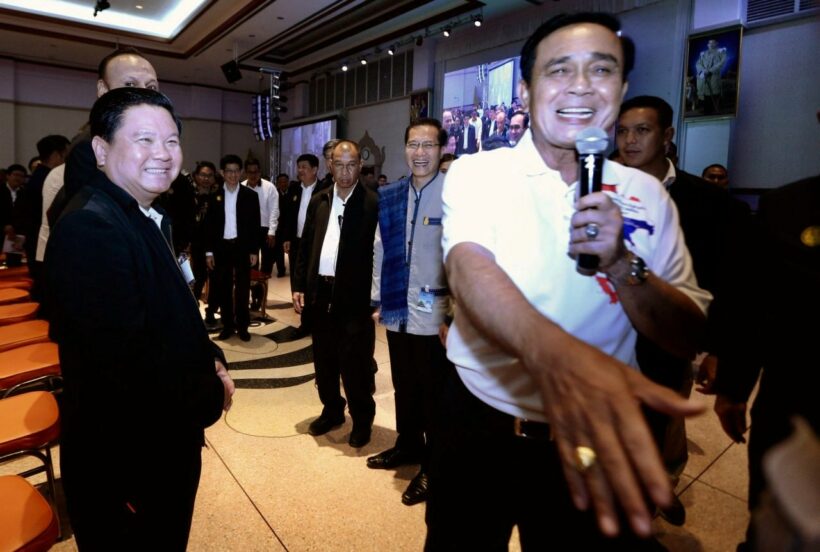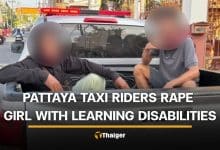Loosening the shackles, nid noi

FILE PHOTO
by Kas Chanwanpen, Khanittha Theppajon
Thai politicians are giving a cautious thumbs up to the junta’s easing of political restrictions that have been in place since the 2014 coup – but they say more has to be done to allow political parties to better prepare for next year’s election.
Prime Minister Prayut Chan-o-cha said yesterday that the ban on political activities would be partially relaxed from next month ahead of the election that is expected to be held between February and May, 2019. In effect, the leader assured that the road map to democracy would go ahead as promised.
His remarks came after the weekly meeting of the ruling junta National Council for Peace and Order (NCPO).
Prayut said the NCPO had initially agreed that the ban should be relaxed soon after the final two electoral legislations were promulgated. He was referring to the organic laws on MP elections and the Senate structure, which are expected to get royal endorsement next month.
“So, everything follows the same schedules [announced earlier],” Prayut said.
“The earliest date possible is February 24, and it can be held on any Sunday as recommended by the Election Commission. The |government has no intention to delay the election any further.”
Political activities that will be allowed include the selection of party executives, membership applications and the selection of MP candidates, Prayut said.
The relaxation should help solve every electoral problem facing political parties, he said.
Parties and politicians have been paralysed since the junta took power in 2014 and imposed restrictions, citing the need for peace and order. The ban continued even after the new Constitution was put in place, stopping them from making preparations for the first election in five years.
Deputy leader of the Democrat Party, Ongart Klampaiboon, say it was a good sign that Prayut had finally cleared up the matter, though he still wanted to see details of the move to determine if it was practical.
“This is just a general direction. We’ll still have to see what the new order will bring,” he said. “Our party just wants an order that will allow us to make preparations for the election as required by the organic laws. We don’t mind partial lifting and full lifting of the ban being done separately.”
Ongart was referring to the fact that the initial easing would only give politicians a certain degree of freedom, while the entire lifting of the ban would come later this year.
Future Forward Party’s deputy leader Chamnan Chanruang said his party was confident it would be able to meet any requirements, but whether the premier’s word could be taken seriously was another matter.
Future Forward has campaigned for the election and will continue to do so regardless of the ban, he said.
“The party never paid attention to such limitations, and when it’s officially lifted, we’ll just proceed accordingly,” Chamnan said.
Chart Thai Pattana Party director Nikorn Chamnong also welcomed NCPO’s move, saying political parties need to be able to move more freely, particularly on urgent tasks, such as member recruitment and primary voting preparations, ahead of the general election.
Pheu Thai politician Worawat Auapinyakul yesterday called for a complete removal of the ban so parties can start campaigning in time for the ballot.
“The primary voting system has been a hurdle to all parties,” Worawat said. “Those new parties will have to seek trustworthy representatives and members in every constituency they’re going to contest. Even the Pheu Thai Party will have to do lots of work in constituencies where we don’t have an MP.”
Read the full story from The Nation HERE.
Latest Thailand News
Follow The Thaiger on Google News:


























